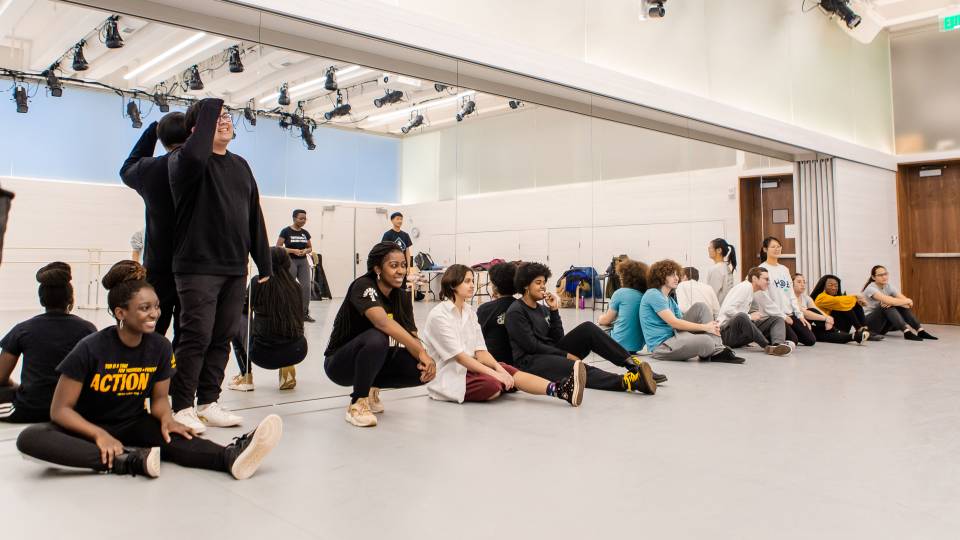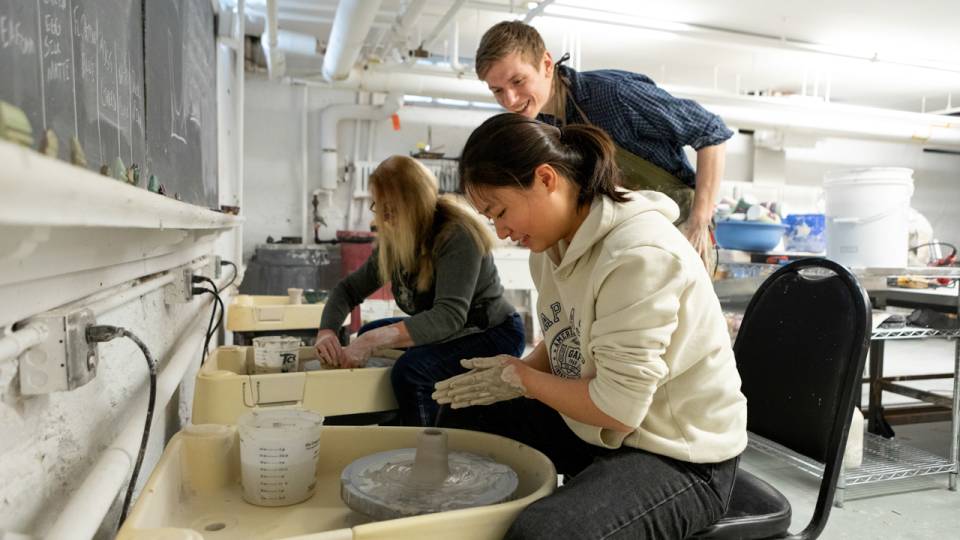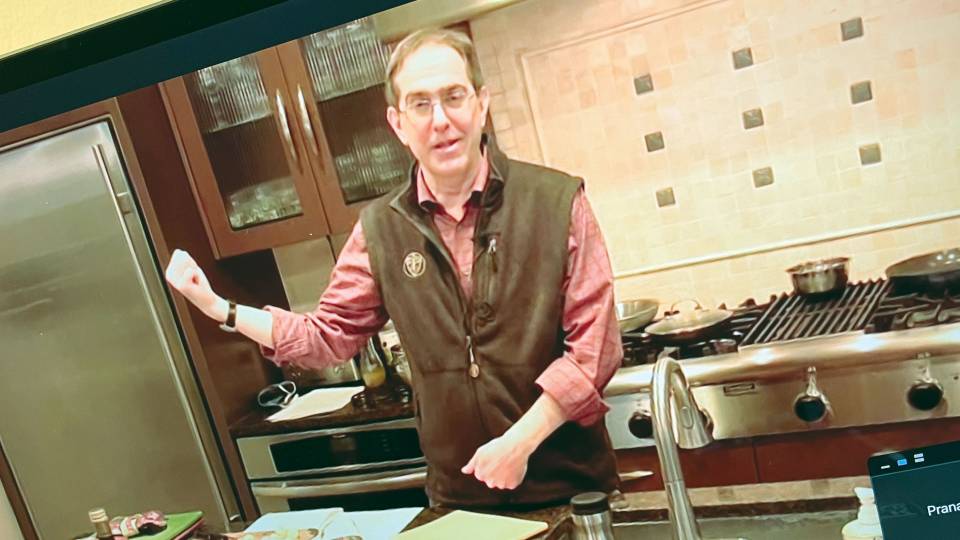The Undergraduate Student Government offered more than 40 classes during Wintersession 2020. Above center, senior Seth Lovelace leads a “Learn Taiko Drumming” workshop during the weeklong program.
Breaking down Bollywood cinema, crocheting stuffed animals, getting better sleep, paying rent and taxes — these were some of the topics of Wintersession 2020, which offered more than 40 classes, mostly taught by students, for students.
The Undergraduate Student Government (USG) organized the weeklong program that ran Jan. 27-31, the week between fall final exams and the start of spring classes. Sophomore and USG Class Senator Andres Larrieu was one of the USG students who helped coordinate the events, which aim to bring community and enrichment for the students who stay on campus. Wintersession had more than 500 registrations.

From left, sophomore Vivian Wang watches as student instructors Ailee Mendoza and Skyler Liu mix batter in the Wintersession course “Go Bananas for Banana Bread!”
“The program allows you to pursue and show your passion and interests to others, no matter how specific or niche it could be,” Larrieu said. “It’s great to discover new interests or to gain an appreciation for a subject. I hope that people who take part of Wintersession feel closer to the overall Princeton community. Participants and instructors can develop ties on mutual interests, develop a skill, or simply have fun doing something new.”
The photos here show a sampling of the Wintersession classes offered this year — “diSiac Dance Company Wintersession Workshop,” “Go Bananas for Banana Bread!” and “Learn Taiko Drumming.”
This year's Wintersession was the final one in this format. With the introduction of a new academic calendar in 2020-21, fall final exams will occur in December, and the University's new Office of Wintersession and Campus Engagement will coordinate a two-week Wintersession Jan. 11-24, 2021. The program will allow University community members to experiment and explore through unexpected and active non-graded learning and growth opportunities. Undergraduate students, graduate students, staff and faculty will be able to participate as teachers, learners or both during the daytime workshops. In the evenings, there will be a variety of events and activities open to all graduate and undergraduate students.

A number of dance companies offered classes for students of all backgrounds and abilities. Above, first-year student Asa Hamot, center, demonstrates some choreography in the “diSiac Dance Company Wintersession Workshop."
Larrieu serves on the Wintersession Advisory Committee, and he said he supports the University’s calendar reform.
“It’s stressful to go back home and have to worry about homework and studying, and it’s stressful to come back straight into finals after three weeks of losing your studying rhythm,” he said. “I believe the two-week program will allow a greater infrastructure to dig deeper into topics without facing any credit, which I believe allows a smoother transition between winter break and the spring semester.”







